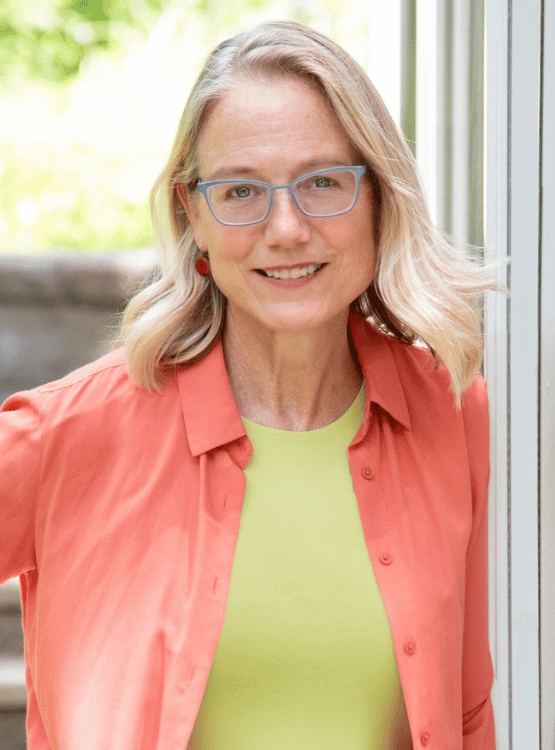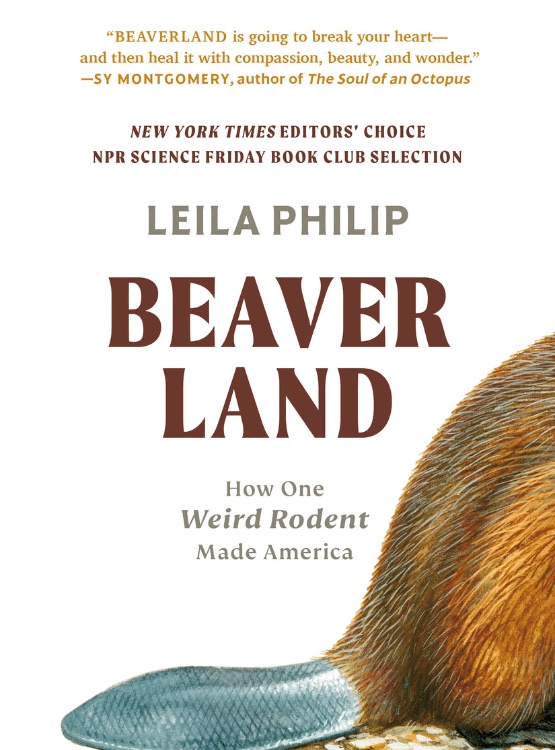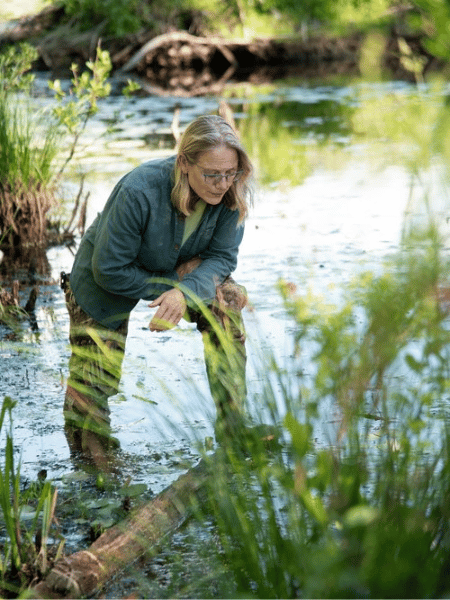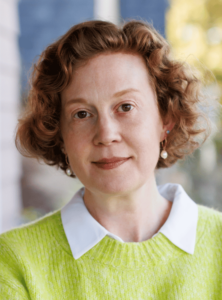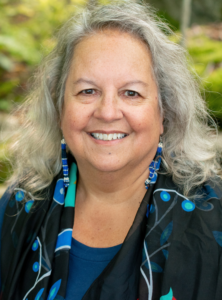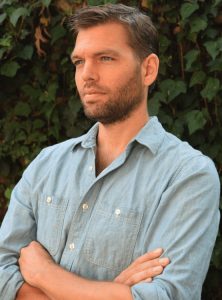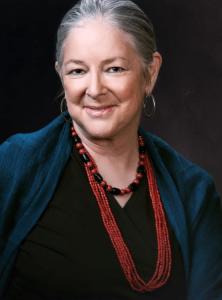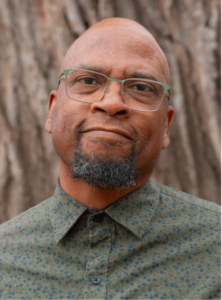 “As an author, Leila Philip is driven by the curiosity of a passionate environmentalist and the hand of a skilled wordsmith. As a lecturer, Philip is also driven by the craft of an energetic, humorous and empathetic lecturer.” — Rhode Island School of Design
“As an author, Leila Philip is driven by the curiosity of a passionate environmentalist and the hand of a skilled wordsmith. As a lecturer, Philip is also driven by the craft of an energetic, humorous and empathetic lecturer.” — Rhode Island School of Design
 “Leila Philip offers an appreciative account of the North American rodent…all of this is inspiring.” — The New York Times
“Leila Philip offers an appreciative account of the North American rodent…all of this is inspiring.” — The New York Times
 “This lyrical exploration is a portal for readers to enter into the mysteries of that world themselves.” — The Washington Post
“This lyrical exploration is a portal for readers to enter into the mysteries of that world themselves.” — The Washington Post
 “Lyrically written, meticulously observed, and exhaustively researched, BEAVERLAND is going to break your heart—and then heal it with compassion, beauty, and wonder.” — Sy Montgomery, New York Times bestselling author of The Soul of an Octopus
“Lyrically written, meticulously observed, and exhaustively researched, BEAVERLAND is going to break your heart—and then heal it with compassion, beauty, and wonder.” — Sy Montgomery, New York Times bestselling author of The Soul of an Octopus
 “We can’t have enough books about this wonderful creature–and this one is particularly strong on the remarkable history of the animal in our continent’s history and imagination. A loud slap of the tail in approval!” — Bill McKibben, author of The End of Nature
“We can’t have enough books about this wonderful creature–and this one is particularly strong on the remarkable history of the animal in our continent’s history and imagination. A loud slap of the tail in approval!” — Bill McKibben, author of The End of Nature
 “BEAVERLAND is wonderful, captivating, and illuminating. I learned so much — about natural history, business history, the world of today’s fur trappers, and the role of a large, strange rodent in America’s ecological future. Leila Philip is a skilled and engaging guide through this beaver-influenced terrain.” — James Fallows, co-author of Our Towns
“BEAVERLAND is wonderful, captivating, and illuminating. I learned so much — about natural history, business history, the world of today’s fur trappers, and the role of a large, strange rodent in America’s ecological future. Leila Philip is a skilled and engaging guide through this beaver-influenced terrain.” — James Fallows, co-author of Our Towns
 “Before the Anthropocene we had the Casterocene: a North American environment profoundly shaped by millions of beavers. In BEAVERLAND, Leila Philip takes us on a fascinating tour of the beaver’s effect on human history, and how, after its near extinction, we need to bring this rodent back for the sake of our ecosystems.” — Frans de Waal, author of Different: Gender Through the Eyes of a Primatologist (Norton, 2022)
“Before the Anthropocene we had the Casterocene: a North American environment profoundly shaped by millions of beavers. In BEAVERLAND, Leila Philip takes us on a fascinating tour of the beaver’s effect on human history, and how, after its near extinction, we need to bring this rodent back for the sake of our ecosystems.” — Frans de Waal, author of Different: Gender Through the Eyes of a Primatologist (Norton, 2022)
 “BEAVERLAND may be the best-realized book about an American animal in years. A work of open-hearted discovery. Can returning beavers and their works save our future? However you answer that, this fine book is going to re-arrange the furniture in your head.”
“BEAVERLAND may be the best-realized book about an American animal in years. A work of open-hearted discovery. Can returning beavers and their works save our future? However you answer that, this fine book is going to re-arrange the furniture in your head.”
— Dan Flores, New York Times bestselling author of Coyote America
 “An astonishing, intrepid compendium about the world according to beaver, including social, cultural, and ethnographic history, juxtaposed with personal narrative. Philip brilliantly paves the way for us to enter this unlikely shaper of our nation as she follows naturalists, researchers, trappers, and local historians, as well as visiting her own backyard pond.”
“An astonishing, intrepid compendium about the world according to beaver, including social, cultural, and ethnographic history, juxtaposed with personal narrative. Philip brilliantly paves the way for us to enter this unlikely shaper of our nation as she follows naturalists, researchers, trappers, and local historians, as well as visiting her own backyard pond.”
 “She dives into many avenues of research, including the enslavement of Native Americans, the cunning greed of John Jacob Astor, the obsession of Dorothy Richards who lived with 14 beavers in her Adirondack house, and the lifeways of indigenous peoples. Every inch of the way we know we are in good hands. BEAVERLAND is poignant, impeccably researched, and as artfully put together as any this ‘weird rodent’s’ houses, with an eye toward the beaver’s role in the anthropogenic disaster of our changing climate and damaged ecosystems.” — Gretel Ehrlich, author of Unsolaced and The Solace of Open Spaces
“She dives into many avenues of research, including the enslavement of Native Americans, the cunning greed of John Jacob Astor, the obsession of Dorothy Richards who lived with 14 beavers in her Adirondack house, and the lifeways of indigenous peoples. Every inch of the way we know we are in good hands. BEAVERLAND is poignant, impeccably researched, and as artfully put together as any this ‘weird rodent’s’ houses, with an eye toward the beaver’s role in the anthropogenic disaster of our changing climate and damaged ecosystems.” — Gretel Ehrlich, author of Unsolaced and The Solace of Open Spaces
 “Leila Philip’s BEAVERLAND is an engaging story centered on a nerdy anti-hero, the beaver. While she states that beavers are weird, she makes a strong case that people in the beaver world are even weirder. This book weaves humor and storytelling with profound thoughts about nature. Don’t miss the beavers parachuting into the Idaho wilderness.” — Mark Kurlansky, New York Times bestselling author of Cod and Salt
“Leila Philip’s BEAVERLAND is an engaging story centered on a nerdy anti-hero, the beaver. While she states that beavers are weird, she makes a strong case that people in the beaver world are even weirder. This book weaves humor and storytelling with profound thoughts about nature. Don’t miss the beavers parachuting into the Idaho wilderness.” — Mark Kurlansky, New York Times bestselling author of Cod and Salt
 “BEAVERLAND is a model for 21st-century environmental writing—a beautifully told story with lodes of well-researched history and ecology, and a lyrical ode to natural wonders that steers clear of romanticism and questions cherished environmental ideas. This book will surprise the hell out of you on nearly every page.” — Jenny Price, author of Stop Saving the Planet!: An Environmentalist Manifesto
“BEAVERLAND is a model for 21st-century environmental writing—a beautifully told story with lodes of well-researched history and ecology, and a lyrical ode to natural wonders that steers clear of romanticism and questions cherished environmental ideas. This book will surprise the hell out of you on nearly every page.” — Jenny Price, author of Stop Saving the Planet!: An Environmentalist Manifesto
 “In this engaging and informative book, Leila Philip tells the tale of North American beavers as seen through human eyes. Philip uses diverse vignettes, from Native American creation stories to visits with contemporary trappers, beaver believers, and scientists, to gradually build a story of beavers and humans through time. Plenty of basic information about beavers is presented in digestible bites along the way as Philip deftly evokes place, mood, people, and beavers.” — Dr. Ellen Wohl
“In this engaging and informative book, Leila Philip tells the tale of North American beavers as seen through human eyes. Philip uses diverse vignettes, from Native American creation stories to visits with contemporary trappers, beaver believers, and scientists, to gradually build a story of beavers and humans through time. Plenty of basic information about beavers is presented in digestible bites along the way as Philip deftly evokes place, mood, people, and beavers.” — Dr. Ellen Wohl
 “Ranging across a continent and five centuries, BEAVERLAND explores our strange relationship with an odd creature capable of inexplicable engineering. In lyrical words and with deep insights, Leila Philip reveals how beavers shaped our environment – and how humans have unraveled their creation.” — Alan Taylor, author of American Republics: A Continental History of the United States, 1783-1850
“Ranging across a continent and five centuries, BEAVERLAND explores our strange relationship with an odd creature capable of inexplicable engineering. In lyrical words and with deep insights, Leila Philip reveals how beavers shaped our environment – and how humans have unraveled their creation.” — Alan Taylor, author of American Republics: A Continental History of the United States, 1783-1850
 “Are beavers smart, asks Leila Philip in this captivating personal journey through history and streams that brings secretive creatures to life—beavers and those who trap them. This engaging tale of how beavers shaped America’s rivers and streams for millennia, and how their comeback is now helping restore waterways, invites us to wonder who, really, is the smart one?” — David R. Montgomery, author of King of Fish
“Are beavers smart, asks Leila Philip in this captivating personal journey through history and streams that brings secretive creatures to life—beavers and those who trap them. This engaging tale of how beavers shaped America’s rivers and streams for millennia, and how their comeback is now helping restore waterways, invites us to wonder who, really, is the smart one?” — David R. Montgomery, author of King of Fish
 “Leila Philip brings intelligence, enthusiasm, and an open mind to her inquiry into the lives and histories of beavers, offering her reader a many-angled vision of her subject as she investigates the overlapping and often-competing interests of the trapper, the developer, the naturalist, the merchant. In doing so, she tracks the beaver’s essential place in our history and our lives. But BEAVERLAND is also a plea — beyond our history, our markets, and our desires — for the pure appreciation of this mammal and its capacity to remake the world. Perhaps this is the greatest achievement of Philip’s clear-eyed and beautifully written book.” — Jane Brox, author of Silence
“Leila Philip brings intelligence, enthusiasm, and an open mind to her inquiry into the lives and histories of beavers, offering her reader a many-angled vision of her subject as she investigates the overlapping and often-competing interests of the trapper, the developer, the naturalist, the merchant. In doing so, she tracks the beaver’s essential place in our history and our lives. But BEAVERLAND is also a plea — beyond our history, our markets, and our desires — for the pure appreciation of this mammal and its capacity to remake the world. Perhaps this is the greatest achievement of Philip’s clear-eyed and beautifully written book.” — Jane Brox, author of Silence
 “Most interesting is what Philip learned about beavers’ contribution to environmental restoration… A spirited, informative historical and environmental investigation.” — Kirkus Reviews
“Most interesting is what Philip learned about beavers’ contribution to environmental restoration… A spirited, informative historical and environmental investigation.” — Kirkus Reviews
 “Offers an enthralling history of beavers and their impact on the United States… The result is a triumph of popular nature writing.” — Publisher’s Weekly
“Offers an enthralling history of beavers and their impact on the United States… The result is a triumph of popular nature writing.” — Publisher’s Weekly
 “Philips’ coverage of beaver behavior, habits, and impacts on biodiversity and ecosystems is instructive…her narrative goes beyond biology as she delves into the ways beavers shape water, land, and community in America.” — Booklist Reviews
“Philips’ coverage of beaver behavior, habits, and impacts on biodiversity and ecosystems is instructive…her narrative goes beyond biology as she delves into the ways beavers shape water, land, and community in America.” — Booklist Reviews
